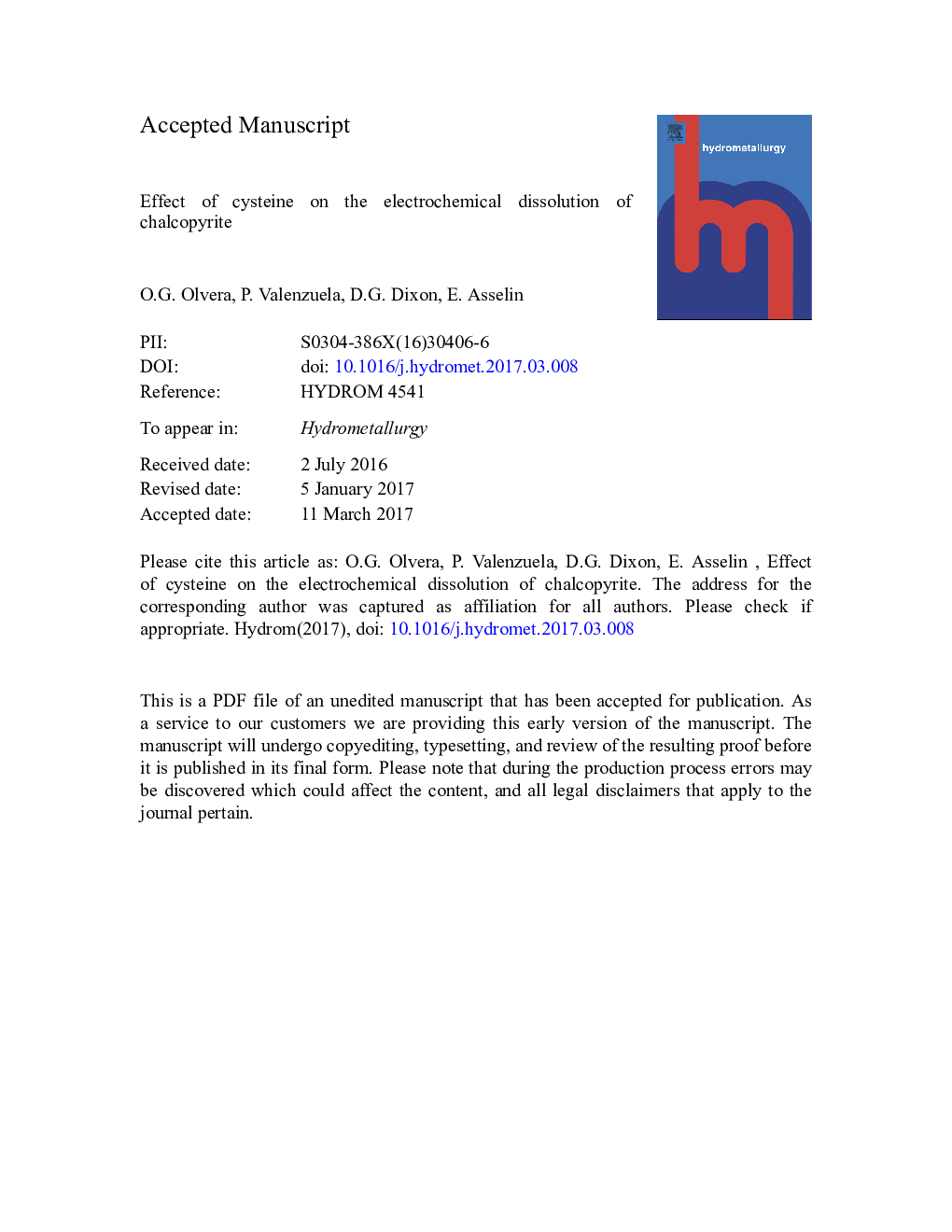| Article ID | Journal | Published Year | Pages | File Type |
|---|---|---|---|---|
| 4769368 | Hydrometallurgy | 2017 | 41 Pages |
Abstract
In the presence of ferric sulfate cysteine was oxidized to cystine. Cystine acted as an oxidant for CuFeS2 and increased the dissolution current density. Reduction of cystine on the surface of CuFeS2 may have resulted in its dissociative adsorption to yield two adsorbed molecules of cysteine. In the presence of ferric sulfate these adsorbed molecules could also have enhanced the electron transfer between the CuFeS2 and the aqueous Fe3Â + species. In the presence of ferric sulfate, cysteine (or cystine) decreased the thickness of the film formed on the surface of CuFeS2 and facilitated the transport of ions at the electrolyte/electrode interface.
Related Topics
Physical Sciences and Engineering
Chemical Engineering
Chemical Engineering (General)
Authors
O.G. Olvera, P. Valenzuela, D.G. Dixon, E. Asselin,
